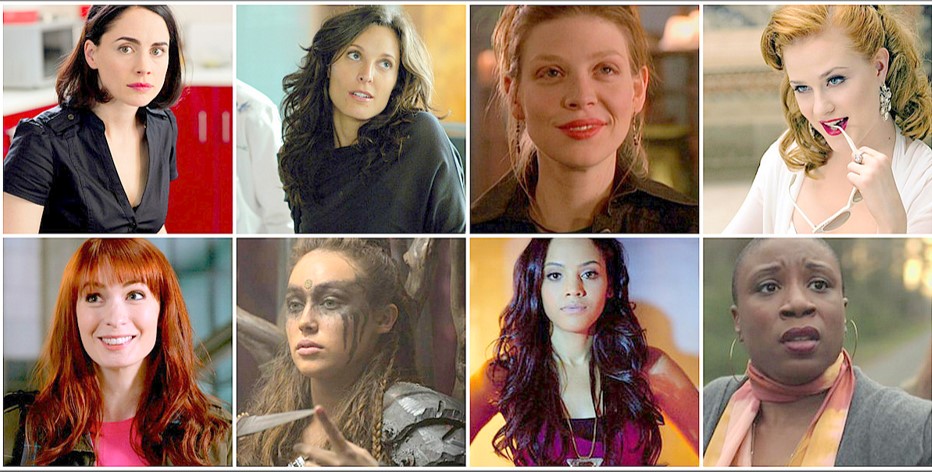TV series penalize lesbian characters
Such are the findings of a study conducted by Rafael Ventura, a member of the Centre for Gender Studies with Mar Guerrero and Maria José Estables, researchers from the Department of Communication. The author calls the phenomenon the “dead lesbian syndrome” and suggests strategies to overcome it. The study pertains to the monograph Comunicación para el cambio social: propuestas para la acción (Tirant lo Blanch, 2019).

The representation of lesbian, gay, bisexual, transgender and queer (LGBTQ) characters in media products plays an important role in the socialization of LGBTQ people, especially in social contexts characterized by the lack of other positive referents that provide them with the tools to tackle harassment and rejection.
As Rafael Ventura, a member of the Centre for Gender Studies and of the Department of Communication at UPF says, the “dead lesbian syndrome” (DLS) refers to a narrative cliché of television series in which the characters of lesbians are repeatedly penalized and removed from the series. Ventura et al. in a recent study analyse the negative consequences this entails for lesbian women and analyses the strategies that some lesbian fans are carrying out to combat it.
Rafael Ventura, with Mar Guerrero Picó and María José Establés, members of the Department of Communication at UPF, have published their work: ”Ciberactivismo fan lesbiano: acciones de protesta no violenta frente a las representaciones heteronormativas de personajes LGBTQ en televisión” (lesbian fan cyberactivism: non-violent protest actions against heteronormative representations of LGBTQ characters on TV) in the book Comunicación para el cambio social: propuestas para la acción (Tirant lo Blanch, 2019), coordinated by Amador Iranzo and Alessandra Farné, aiming to be an open window to different experiences and visions with the common denominator of building a more just and egalitarian society.
This chapter contributes to the development of research on communication for social change to incorporate the LGBTQ perspective
Dead lesbian syndrome, a recurring TV cliché
The activism that empowers fans arises precisely from a situation where TV producers make repeated use of a TV cliché known as dead lesbian syndrome (DLS). The work by Ventura, Guerrero and Establés aimed to analyse the non-violent protest strategies that lesbian and bisexual fans carry out actively through Internet and social networks in response to the treatment received by non-heterosexual female characters by the television industry. For example, on North American commercial TV channels, the representation of lesbian characters and, specifically lesbian couples, often ends in death or murder, thus eliminating any chance of reaching a happy ending and with tragic and violent endings instead.
Several non-violent protest actions
This has led fans, in a process of empowerment, to get organized and create a community through social networks to undertake collective actions in order to transform the situation of injustice produced by the DLS cliché. The authors cite some examples, such as boycotting television series, refusing to watch the live programme to reduce viewing figures; symbolic protests, generating noise in social networks (Twitter) to raise awareness about the negative representations and to demand changes to improve the conditions of LGBTQ characters; and fund-raising campaigns for organizations that support young members of the LGBTQ community at risk of suicide (The Trevor Project). The authors, through discourse analysis, analysed the development of these strategies of non-violent protest and their importance for social change regarding the media representation of LGBTQ characters.
The protest actions carried out in the virtual environment of the Internet and social networks have real effects in the non-virtual world
The authors of the study conclude that “the actions carried out by organized fandom and LGBTQ cyberactivism may influence the control of television scripts. They constitute influential communities and pressure groups whose agendas include the rejection of the under-representation of TV characters representing sexual minorities”. Lesbian fans become social agents of change leading protest campaigns.
Cyberactivist campaigns can influence the stability of media products and force changes in the dynamics of the production of television series, in addition to generating public awareness about the problems posed by the violence of heteronormativity
In this process of empowerment, Internet and social networks become virtual spaces that provide opportunities that would not be possible in real space. The protest actions carried out in the virtual environment have real effects in the non-virtual world.
The authors state: ”As we have seen, cyberactivist campaigns can influence the stability of media products and force changes in the dynamics of the production of television series, in addition to generating public awareness about the problems posed by the violence of heteronormativity”.
Finally, this chapter contributes to the development of research on communication for social change to incorporate the LGBTQ perspective. The authors detect a lack of studies that consider the LGBTQ perspective from the field of non-violence and peace studies, both at the theoretical level, looking further into conceptual frameworks, and at the empirical level, providing uncommon methodologies and case studies in this discipline.
Reference work:
Rafael Ventura, Mar Guerrero Picó, María José Establés (2019),"Ciberactivismo fan lesbiano: acciones de protesta no violenta frente a las representaciones heteronormativas de personajes LGBTQ en televisión", cap.VII, pp.137-157, In: Amador Iranzo, Alessandra Farné (coord.), Comunicación para el cambio social: propuestas para la acción (Tirant lo Blanch editorial, 2019).
